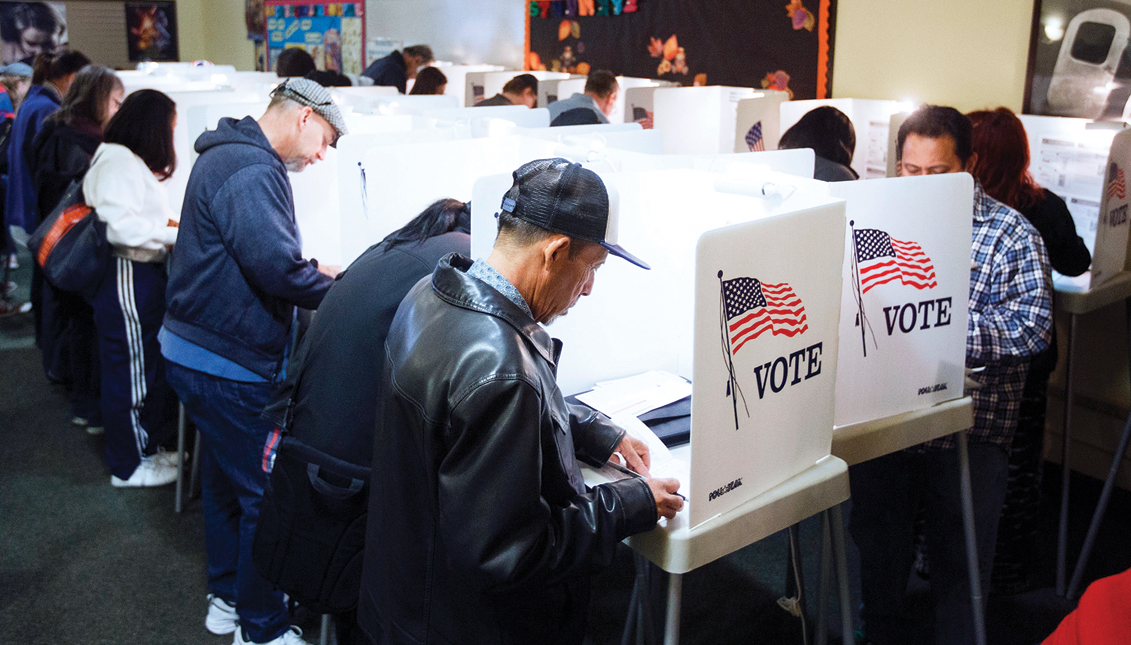
Democrats shall include photo I.D. into voter rights federal bills | OP-ED
The photo I.D. to vote issue is a no-brainer for Latinos. Hispanics consider it evident that picture identification is an integral electoral process component…
For Latino immigrants, who have become U.S. citizens with electoral experience in Latin America, it is unthinkable to vote without presenting a document with the voter's face.
But during the past two decades, voter photo identification laws have been an extremely contentious issue in the country.
Arizona voters triggered the matter by passing Proposition 200 in 2004, which required presenting a photo I.D. to vote as proof of citizenship. Then, that Arizona's State law sparked a flood of bills seeking approval for photo I.D. requirements across the country.
According to the National Conference of State Legislatures (NCSL), 35 states now require voters to show identification at the polls. A total of 21 states asks specifically for photo I.D. at the precincts, points Ballotpedia.
Republican lawmakers have turned to photo I.D.s as the essential defense against voter fraud nationwide. That's the reason why the issue of photo identification is one of the biggest obstacles to the advancement of president Joe Biden's voting rights agenda on Capitol Hill.
If the voter I.D. issue disappears, it will be easier for the Freedom Vote Act and the John Lewis Voting Rights Advancement Act to become laws.
Last June, a Monmouth University poll showed that 80% of Americans support requiring a photo I.D. to vote. Only 18% are opposed. By political affiliation, the backing stands at 62% among Democrats, 87% among independents, and 91% among Republicans.
But the photo I.D. requirement seems an untouchable topic for African-Americans. Blacks remind us they obtained the full right to vote after fighting for civil rights in the sixties and older people had for long time-limited access to identifications.
Opponents to photo I.D.s claim that electoral fraud is minimal and that the burden on voters unduly restricts the right to vote and imposes unnecessary costs on election administrators.
RELATED CONTENT
A 2006 Brennan Center for Justice report found that 11% of U.S. citizens do not have government-issued photo identification.
The ACLU argues against the photo I.D., saying: "even if I.D. is offered for free, voters must incur numerous costs (such as paying for birth certificates) to apply." I ask: Isn't it the civic responsibility of every individual to get an I.D. and pay for the service?
Daily life demands photo identification for boarding an airplane, cashing a check, purchasing prescribed medicine, picking up a package, driving, or visiting public buildings.
I don't understand how people navigate the system without an identification. How do they apply for scholarships? or government benefits? I'm sure they will get transportation and money to attend a World Series, NFL, or NBA finals if free tickets are offered to them.
Democratic leadership considers it sacrilegious that any intent aims to debate the subject of photo I.D. to vote. Instead of practicing paternalism with potential voters, anti-photo I.D activists must enfranchise and empower their bases to succeed.
All Spanish-speaking countries require the use of their national I.D.s to participate in elections. Magdalena Krajewska, professor of political science at Wingate University in North Carolina, said to the "Atlantic" magazine: "out of nearly 200 countries across the world, at least 170 have some form of national I.D. or are implementing one.
"Since 1976 I started to exercise the privilege to vote with my Colombian "Cédula de Ciudadanía." After I became a U.S. citizen, I also have participated in every election.
It is unconscionable that a photo I.D. to vote be forbidden fruit in the United States of America in the second decade of the twenty-first century.










LEAVE A COMMENT:
Join the discussion! Leave a comment.